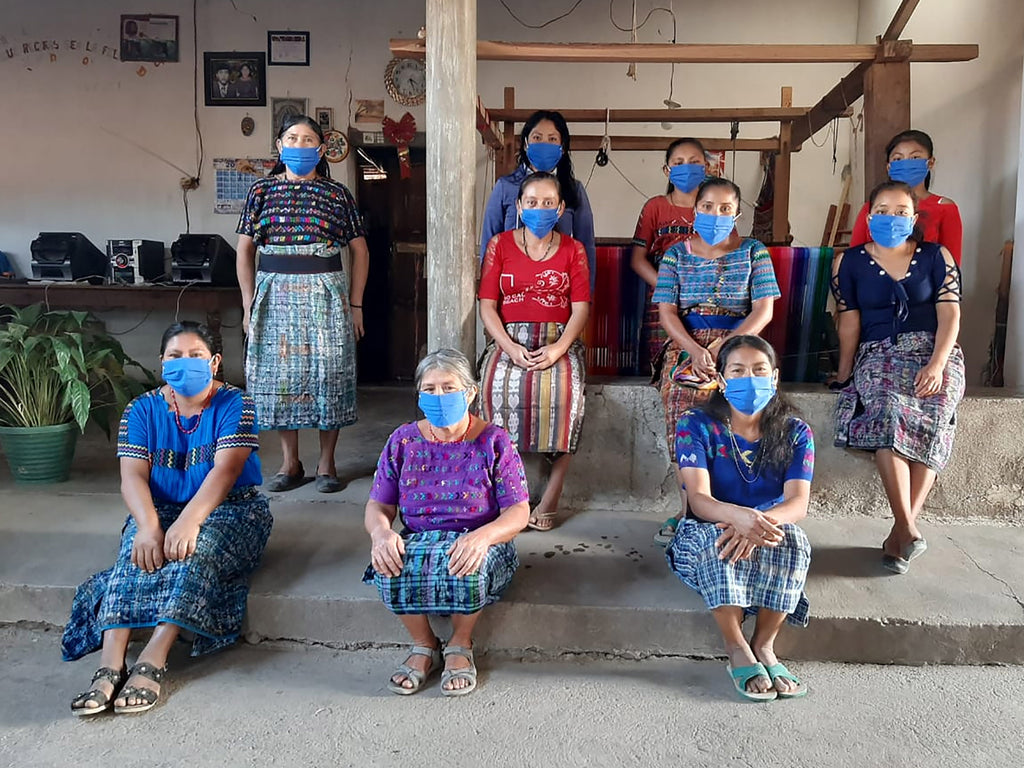
We are grateful to the many Mayan Hands customers and friends who have inquired about the effects of the pandemic in Guatemala and how it is affecting our artisan partners.
As in most countries in Latin America, the situation of COVID-19 in Guatemala is serious. According to the Guatemalan health department, there have been to date almost 52,000 cases reported and the incidence of death is 3.9%. COVID-19 is intensifying the hardships of a population already suffering from extreme poverty, violence and years of drought due to climate change. Guatemala lacks an adequate medical system to confront the pandemic and social safety nets.
Many Guatemalans have lost their jobs or cannot do their informal work due to the strict lockdown measures. In poor neighborhoods in Guatemala City, people hang white banners in their homes to signal that they need food and many are now begging on the streets.
The country went on a drastic lockdown in mid-March – no public transportation, all non-essential businesses closed, and strict curfew, but by the end of July due to tremendous economic pressures, many restrictions are being lifted though a high level of risk remains. Observers are worried that this will increase the number of infections dramatically.
Thankfully, in most villages where our artisan partners live the level of infections has been minimal, thanks to the strict measures of their local authorities. Outsiders are not allowed into their communities nor are community members allowed to travel outside unless absolutely necessary. In most of the fifteen communities where we work, local authorities have been able to set up small markets where people can buy their food without having to leave their communities.
Our staff in Guatemala has been in touch with the women regularly since the beginning of the crisis. Early on, before the lockdown, they organized a workshop on COVID-19 for the leaders of the cooperatives, facilitated by an educator from a local health center. The women learned about the virus and how to keep their families healthy and went back to their communities with masks, soap and educational materials for all the cooperatives’ members.
Unfortunately, because our sales in the United States have plummeted by 70% due to the fact that stores that normally purchase from us were forced to close, we have been able to give only small product orders to our artisan partners. Thanks to the generosity of donors, all two hundred artisan partners received stipends, one in April and one in June. Another is planned for early this fall. These have made up for a good portion of their missing income.
Our artisan partners tell us that while they are following all safety protocols, they continue to be terrified by what they call “a mortal illness.” They lament not being able to work together with the other women in their group and be restricted to their homes. In many cases, their husbands and other family members have lost their jobs. The women have expressed deep gratitude to their donors for the income that has enabled them to purchase the corn and beans, rice and sugar, their daily needs. A few purchased hens to have eggs to eat, and some bought fertilizer for their corn plants.
But time and again they stress how much they miss having work, work that has sustained their families and supported their children’s education. They listen to the news about the pandemic and understand that this crisis, and their lack of work, may last for a long time. They express their concern not only for their own communities. but for the people around the world they are connected to through their work.
We are committed to supporting our artisan partners through this challenging time. They have worked hard for many years to create unique, excellent quality products, gaining the respect of customers in the global marketplace. As their partners on this journey, we are committed to finding new ways to increase sales and get the women back to work and to support them with subsidies until the situation normalizes.










Leave a comment (all fields required)